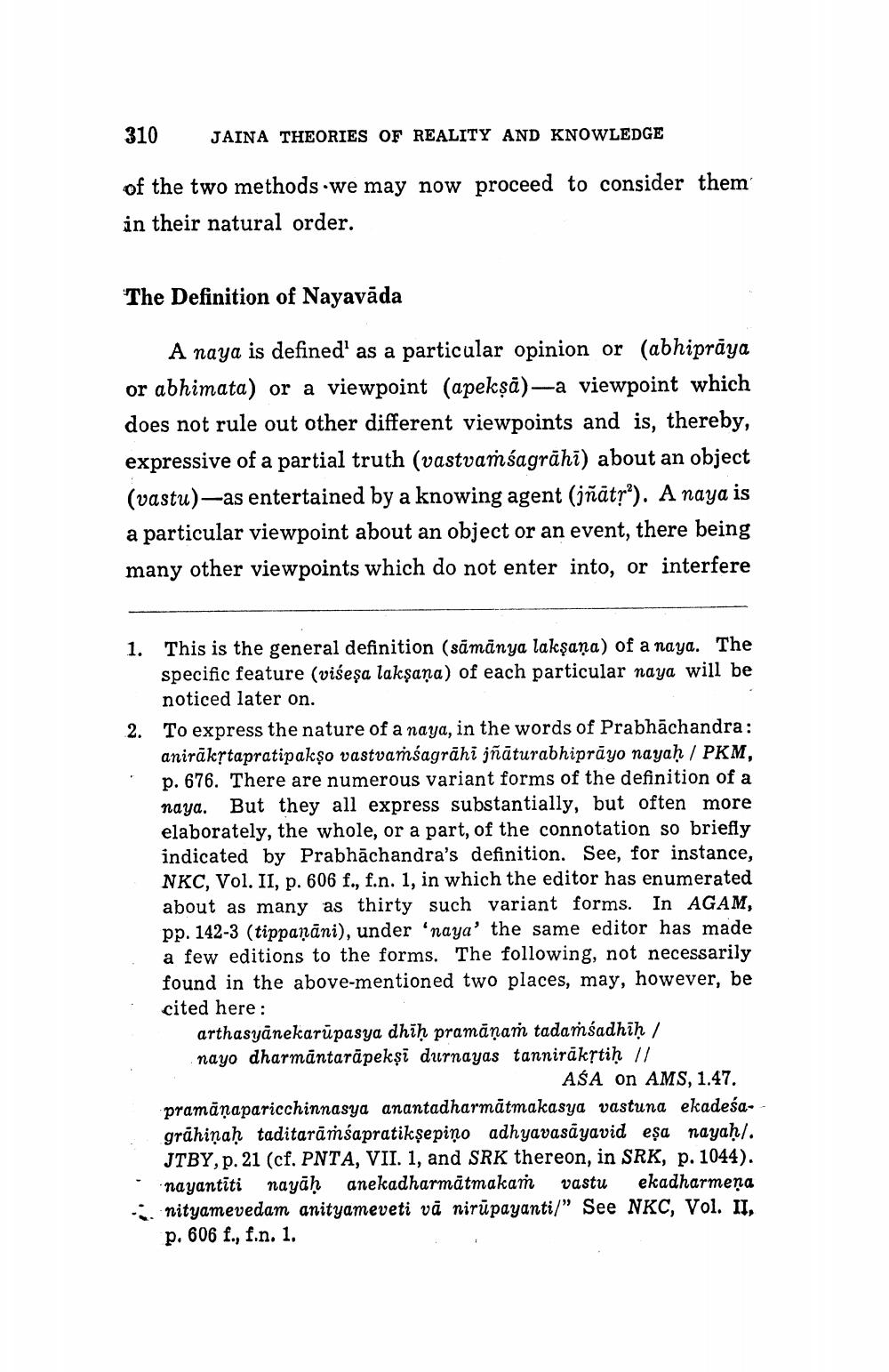________________
310
JAINA THEORIES OF REALITY AND KNOWLEDGE
of the two methods we may now proceed to consider them in their natural order.
The Definition of Nayavāda
A naya is defined as a particular opinion or (abhiprāya or abhimata) or a viewpoint (apekṣā)—a viewpoint which does not rule out other different viewpoints and is, thereby, expressive of a partial truth (vastvaṁśagrāhī) about an object (vastu)-as entertained by a knowing agent (jñāt?). A naya is a particular viewpoint about an object or an event, there being many other viewpoints which do not enter into, or interfere
This is the general definition (samanya laksana) of a naya. The specific feature (višeşa lakşaņa) of each particular naya will be noticed later on. To express the nature of a naya, in the words of Prabhāchandra: anirākṣtapratipakso vastvarśagrāhi jñāturabhiprāyo nayah / PKM, p. 676. There are numerous variant forms of the definition of a naya. But they all express substantially, but often more elaborately, the whole, or a part, of the connotation so briefly indicated by Prabhāchandra's definition. See, for instance, NKC, Vol. II, p. 606 f., f.n. 1, in which the editor has enumerated about as many as thirty such variant forms. In AGAM, pp. 142-3 (tippanāni), under 'naya' the same editor has made a few editions to the forms. The following, not necessarily found in the above-mentioned two places, may, however, be cited here:
arthasyānekarūpasya dhiḥ pramānam tadaṁśadhih / nayo dharmāntarāpekşi durnayas tannirākştiḥ //
AŚA on AMS, 1.47. pramāņaparicchinnasya anantadharmātmakasya vastuna ekadeśagrāhiņaḥ taditarāṁsapratiksepiņo adhyavasāyavid eșa nayaḥ/. JTBY,p. 21 (cf. PNTA, VII. 1, and SRK thereon, in SRK, p. 1044). nayantīti nayāḥ anekadharmātmakam vastu ekadharmena nityamevedam anityameveti vā nirūpayanti/" See NKC, Vol. II, p. 606 f., f.n. 1.




